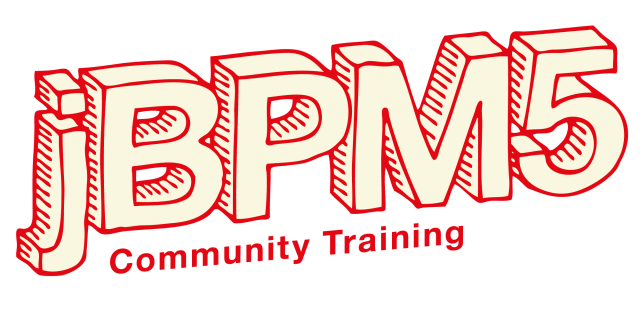Announcing jBPM5 Community Training !
Hi there, I’m glad to announce the first jBPM5 Community Training. I will be posting here the training material and some speaker notes about the training slides. Please feel free to give us feedback about the content and suggest us missing topics to include.

The Roadmap
In this post I’m sharing the Roadmap for this training release, because it’s a work in progress I need sometime to get the material published and ready for the community audience.
Please share some feedback about the proposed topics and the release dates. I will be glad to improve it over the time in order to get a quality training from the community perspective!
Disclaimer: I will try to keep the following dates updated, and I will do my best to publish the training course on time, but dates can vary a little bit depending my work resposibilities.The following roadmap represent the first release (1.0-SNAPSHOT) of the training course:
Module 0 - 10th March:
Baby Steps Examples: this module covers very basic examples for new comers. Thanks to Julio Faerman for this contribution! (you can find it here)
Module 1 - January 28:
Basic Overview about jBPM5: This module will contain a brief overview of the most important features inside jBPM5 (Released on time, you can found it here)
Module 2 - February 5:
BPM Concepts: This module will contain a brief overview about the BPM Discipline and the main concepts behind jBPM5. The concept of Rule Engine will be also discussed here to understand the tighter integration between jBPM5 and Drools 5. (Released one day before the deadline, you can find it here)
Module 2.5 - March 17:
BPM For Developers: This module covers a developers perspective to the BPM Discipline. Some of the concepts were already covered in Module 2 but this presentation adds the common scenarios where BPM and BPMS can helps to improve how the work is being done in a company. (You can find it here)
Module 3 - Febraury 15: (Delayed, see notes in Module 4)
BPMN2.0 Introduction: This module will covers the main Activities, Gateways, Events and concepts defined by the BPMN2 spec. This module is a must read introduction to be able to design business processes using the BPMN2 standard notation.
Module 4 - Febraury 25th(Released the February 21):
jBPM5 APIs and Basic Usage Introduction (you can find it here)
Module 5 - March 1st:
(Released on 9th March, sorry for the delay) Modeling your Business Processes using Domain Specific Activities: this module will cover the concept of work item inside jBPM5. This module will show how to build domain specific Service Tasks to be able to model more descriptive and easy to read business processes using domain specific activities. (you can find it here)
Module 6 - March 15th:
Human Interactions: This module will be about the key concepts that we need to learn about Human interactions inside our processes.
Module 7 - March 25th:
jBPM5 Asynchronous vs Synchronous interactions with external systems: this module is about external systems interaction. During this module some common mechanism to interact with Synchronous and Asynchronous systems will be introduced.
Module 8 - April 5th:
BPMN2 advanced Features: this module will cover examples and common usage of advanced features inside the BPMN2 specification like: message flows, complex gateways and error events.
Module 9 - April 15th:
Process and Rules together: this module contains a set of examples that shows the advantages and flexibility that provides designing business processes using the concept of a Rule Engine.
Module 10 - April 25th:
Process and Rules + Events: this module covers a complete guide to model business situations using the three main concepts around the jBPM5 and Drools projects. Smart Business processes running in conjunction of Business Rules and Complex Event Processing features will be demonstrated.
Module 11 - May 5th:
Architectural Best Practicies to use jBPM5 + Drools: this module will cover most common practices to design and build large applications that will use jBPM5 and Drools projects. A list of recommendations and architectural tips will be presented to understand how to take advantage of the flexibility that present the platform.
Please, feel free to write me back and propose me more topics that interest you. I’m very flexible and I will do this community training to reduce the learning times of this amazing project.
Stay tuned!
